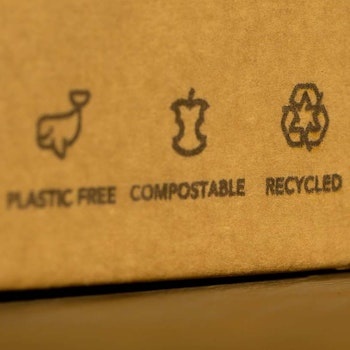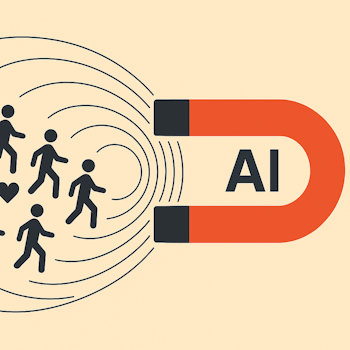
Passing Knowledge is Power
Published on: January 30 2019
Knowledge is not Power
Working in corporate cultures can lead to bad behaviours. I can speak from experience, having worked in P&G R&D for 24 years. I was privileged to work with smart people with smart degrees, oodles of creativity and problem solving skills. Indeed, each one of my colleagues was recruited on the same “What Counts Factors”. When we talked about what we had done in our Universities, we were encouraged to talk about “I”. We were all encouraged to lead, to take on project ownership, and importantly we were told to work on our individual product contributions. Our annual working development plans focused on what we had achieved using Context (background), Action (what we did) and Result (what were the results we had achieved). We were told what our strengths were through 360° feedback and we were also told what we needed to work on. The best P&G managers provided real-time feedback and mentoring, the worst ones provided useful feedback only in the annual appraisal. Annually, you were rated versus your peers in a forced normal distribution and those who were performing best would be advanced and those performing worst were given time and support to change or were “managed” out. I am sure P&G were not alone in this approach, but having left 3 years ago I would like to provide a perspective on how I believe this approach changes behaviours and ultimately can slow down Innovation.
The Problem
Rewarding individual contributions can lead people to “hoard” data and knowledge in the belief that knowledge = power. P&G were aware of this and asked all of their research staff to write 1 page monthly reports. We were encouraged to be concise and to use the top box headlines to capture the “key learnings”. Having left P&G I have realised this is a key strength and an Insight is only useful if it is Actionable. Specifically, I learned to focus on what was the observation from data analysis or listening to consumers and what should the company do with that insight. Another consequence of large company cultures is that they have more people. More people means more managers and more hierarchies. Then there is a requirement for more meetings. Days can be spent endlessly in meetings to align key stakeholders within your own function and across functions before any decisions can be made.
A Solution
I am able to compare that approach with that of CloudArmy where Scrums are held, where decisions are made instantly and in some cases acted on during the meeting. Sharing Knowledge is key as we build on each other’s ideas and perspectives. Each Scrum is high energy, action-orientated and is focused on the key areas of Sales, Product & Science. Smaller sub-teams work on specific areas of interest but still with the same mindset of sharing knowledge, building insights/hypothesis, and then testing these as quickly as possible. These Scrums are fun, high energy, intense but productive. For this to work most effectively, teams need to trust each other. They need to be prepared to have frank discussions and share all their thoughts and feelings. Like ants and bees they need be driven to augment the power of the collective and determine what “We” can achieve together.
Working in corporate cultures can lead to bad behaviours. I can speak from experience, having worked in P&G R&D for 24 years. I was privileged to work with smart people with smart degrees, oodles of creativity and problem solving skills. Indeed, each one of my colleagues was recruited on the same “What Counts Factors”. When we talked about what we had done in our Universities, we were encouraged to talk about “I”. We were all encouraged to lead, to take on project ownership, and importantly we were told to work on our individual product contributions. Our annual working development plans focused on what we had achieved using Context (background), Action (what we did) and Result (what were the results we had achieved). We were told what our strengths were through 360° feedback and we were also told what we needed to work on. The best P&G managers provided real-time feedback and mentoring, the worst ones provided useful feedback only in the annual appraisal. Annually, you were rated versus your peers in a forced normal distribution and those who were performing best would be advanced and those performing worst were given time and support to change or were “managed” out. I am sure P&G were not alone in this approach, but having left 3 years ago I would like to provide a perspective on how I believe this approach changes behaviours and ultimately can slow down Innovation.
The Problem
Rewarding individual contributions can lead people to “hoard” data and knowledge in the belief that knowledge = power. P&G were aware of this and asked all of their research staff to write 1 page monthly reports. We were encouraged to be concise and to use the top box headlines to capture the “key learnings”. Having left P&G I have realised this is a key strength and an Insight is only useful if it is Actionable. Specifically, I learned to focus on what was the observation from data analysis or listening to consumers and what should the company do with that insight. Another consequence of large company cultures is that they have more people. More people means more managers and more hierarchies. Then there is a requirement for more meetings. Days can be spent endlessly in meetings to align key stakeholders within your own function and across functions before any decisions can be made.
A Solution
I am able to compare that approach with that of CloudArmy where Scrums are held, where decisions are made instantly and in some cases acted on during the meeting. Sharing Knowledge is key as we build on each other’s ideas and perspectives. Each Scrum is high energy, action-orientated and is focused on the key areas of Sales, Product & Science. Smaller sub-teams work on specific areas of interest but still with the same mindset of sharing knowledge, building insights/hypothesis, and then testing these as quickly as possible. These Scrums are fun, high energy, intense but productive. For this to work most effectively, teams need to trust each other. They need to be prepared to have frank discussions and share all their thoughts and feelings. Like ants and bees they need be driven to augment the power of the collective and determine what “We” can achieve together.





